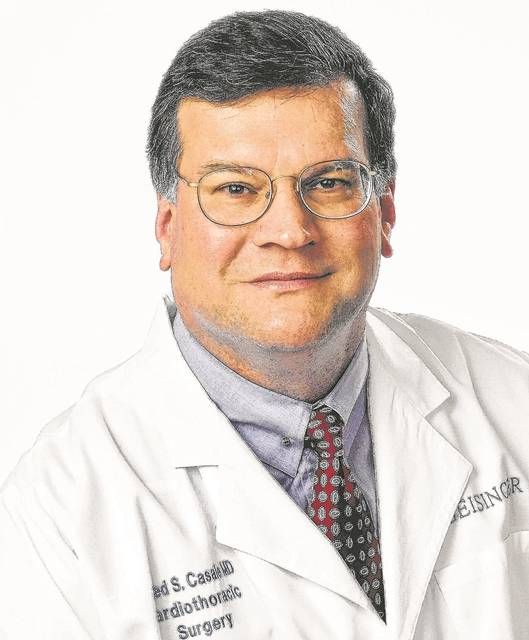Click here to subscribe today or Login.
We’ve been talking so much about COVID-19 lately, and how one specific virus has impacted the way we live, that it’s easy to forget we must maintain one of the most vital layers of healthcare, primary care.
Your primary care provider knows you better than anyone in your healthcare system and is best suited to address most of your health concerns. Your primary care provider conducts your routine checkups and screenings, cares for your chronic conditions and treats common illnesses and injuries.
A primary care provider can be a pediatrician for children and young adults up to age 18, a family medicine doctor who can provide care to the whole family, an internal medicine physician who can help manage chronic conditions like diabetes, arthritis and heart disease, or an advanced practitioner, like a physician assistant or nurse practitioner who works closely with your doctor to diagnose, treat and manage your care.
Walk-in clinics and urgent care facilities are great when you need care and your doctor isn’t available, but they are not meant to replace a primary care provider. Having a doctor who sees you regularly and understands your personal health history comes with quite a few advantages.
Primary care providers can help you stay healthy through preventive care. Depending on your health needs, you’ll have at least one annual checkup and appropriate preventive health screenings, such as screenings for cancer, diabetes and high cholesterol.
During your well visits, your doctor will also identify any conditions you may be at risk for developing and offer advice as to how to lower those risks. Identifying risk and conditions early allows courses of treatment to be more effective in many cases. And you’ll also have the opportunity to get vaccines, such as the flu vaccine, on schedule.
Primary care providers are your partners in managing chronic health conditions. They can help you keep long-term conditions like diabetes, asthma, heart disease or arthritis under control through lifestyle changes, medications and recommended treatments. And when necessary, they can recommend a specialist and work alongside that specialist to help keep you well.
Your personal doctor is a pro at coordinating your care. If you have complex health conditions that require multiple specialists, a primary care provider will find the right ones and work with those specialists as a team dedicated to providing you the best possible care.
And don’t forget, your primary care provider can treat your unexpected health issues as well, addressing everything from colds, rashes and ear infections to pulled muscles and strains. When your doctor is unavailable, walk-in clinics and urgent care facilities are a good option, but the emergency room should only be utilized for true health emergencies.
By learning about you, your family history, your personal past medical issues, what’s important in your life and how you’ve reacted to medicines and situations before, your personal medical advisor will become the most important partner in your work to stay well.
So, if you don’t have a primary care provider, find one who is right for you. Establishing and building a relationship with your doctor is crucial and will keep you healthier in the long run.
Dr. Alfred Casale, a cardiothoracic surgeon, is chief medical officer for surgical services for Geisinger and chair of the Geisinger Heart Institute. Readers may write to him via [email protected]. For information on alternative treatment for atrial fibrillation, visit https://geisinger.cc/2wLkTJz








